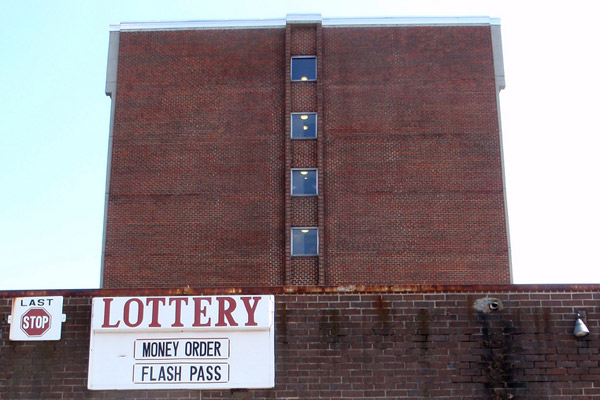
John Kass has an interesting piece today on the winners of the MegaMillions down in the pleasantly named town of Red Bud, and issues of privacy and transparency with regards to state lotteries. The state's reason for wanting to reveal the winners is pretty interesting:
Michael Jones, superintendent of the Illinois state lottery, said it's a long-standing policy. The lottery wants the identities of winners to be public, in part to assure the people who play the games that there is indeed a winner and that the outcome was not rigged.
"Presenting to the public that there was a winner, that's an important principle," he told us Thursday.
There are exceptions, as Kass explains, as it's up to the superintendent's discretion. Should you win, there are arguments—both historical and theoretical—that, if you do ever happen to strike it rich, it's worth trying to make yourself an exception. First, as David Bernstein found when he profiled Alex Snelius about his $18-million-dollar headache, you start hearing from all over:
“When you do win it, you say, ‘Thank you, God’—you know, you’re blessed,” says Snelius. “But you’re not blessed—you’re cursed. Money is not happiness—it’s a curse: People don’t leave you alone; charities come from every direction you can think of; the government taxes the heck out of you. I don’t like it.”
[snip]
Snelius says that, once the world learned of his new wealth, he became a target. Almost immediately, letters with strangers’ sob stories started arriving by the hundreds, possibly thousands. Relatives whom Snelius had never met came out of the woodwork. Friends and business associates hounded him for handouts. “I lost a lot of good friends,” he says. “Friendship is no money involved. But it seems like that’s all it became. It turned me off.” One of his closest—now former—friends expected yearly cash gifts. Cindy chimes in: “He was like, ‘Put me on your payroll.’”
And that's just the half of it. You've probably heard the folk wisdom about lottery winners blowing through their money and going broke. As I learned when I read up on that old saw, I learned that the two concepts—getting hit up for money, and blowing it all—might be related. Economist Jessica Goldberg set up a clever study, running both public and private lotteries in Malawi. In the public lotteries, the winner was revealed; in the private ones, the winner kept his or her anonymity (emphasis mine).
If public knowledge about income does not constrain its use, then spending patterns will be the same for winners of the public and private lotteries. On the other hand, if public winners face a different budget constraint than private winners, they will spend their prize more quickly in order to evade the obligation to share their income. Indeed, I find that those who receive money under the public condition spend 35 percent more windfall income within the first week of receiving it than those who receive money under the private condition.
It could be selfishness; it could be the stress of having money that people want. You don't have to keep all, or even some of your lottery money, but you're better off keeping it like a secret.
Photograph: Daquella manera (CC by 2.0)


